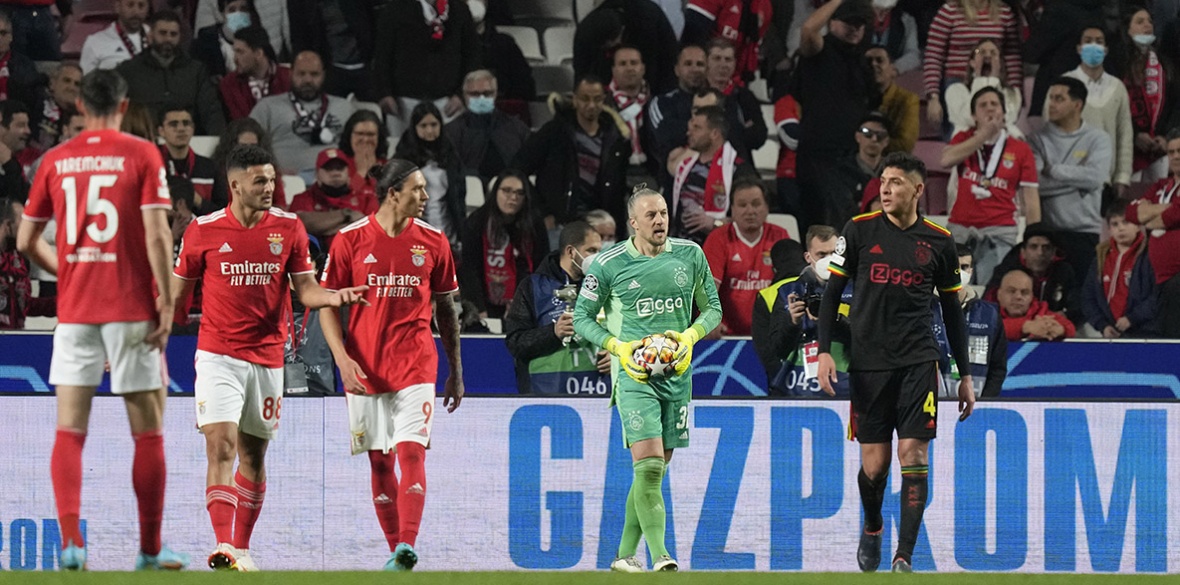This is the last article you can read this month
You can read more article this month
You can read more articles this month
Sorry your limit is up for this month
Reset on:
Please help support the Morning Star by subscribing here
IN THE week when Russia invaded Ukraine to bring war to Europe it seems frivolous to speak about sport.
When people are losing their homes – and in many tragic cases, their lives, as the tanks roll in, disrupting life, hopes and dreams – conversation about sport appears as insignificant as it is meaningless.
As much as I enjoyed Arsenal’s last-gasp victory over Wolves on Thursday evening in north London – and I did, believe me I really did – the train journey back home seemed far more subdued than it would normally have been after such a triumph.
I could see the majority of fans clad in red and white glued to their mobile phones. Yet it was only when I looked around the carriage that I realised that many weren’t checking the latest post-match reaction to the game, because, as far as I could see, they were glued to the latest developments 2,000 miles to the east.
It got me thinking: should sport and politics ever mix?
I am convinced that politics and sport, not to mention the politics of sport, are bedfellows, strange ones at times, but ones that are inextricably linked. And to ignore either in situations such as this is plain wrong.
Take for example Uefa taking away Russia’s right to host the Champions League final in May. There was simply no way the event could be held in St Petersburg after this week. (Even if the fact that Gazprom are major sponsors is a different matter entirely).
That sportswashing and sport pander to power, however shady or opaque the sponsors might be, is nothing new, just as it is as reprehensible as it is concerning. But for sport to have done nothing this week would have compounded error upon error.
Just as Sebastien Vettel’s early proclamation that he won’t race in the Russian Grands Prix later this year deserves acclaim.
Even if the fact that F1 has turned a blind eye to human rights abuses in Russia, not to mention Saudi Arabia and Bahrain, means the sport is already complicit in handing legitimacy to murderous regimes.
Yet it is because sport is so popular and can reach so many more people than politics can, that any gesture is amplified exponentially.
Don’t believe me? Take a look at the notable sports boycott of racist, apartheid South Africa. While Thatcher was instructing banks to continue trading with such a reprehensive regime, the majority of sports stars were avowedly avoiding the country, leading to the country becoming a sporting pariah.
Something that many involved in the apartheid years admitted was a factor in the country attempting to free itself of its disgustingly racist system.
The praiseworthy actions of so many cricketers in shunning lucrative tours to South Africa still reverberate. Take a look at the fire in Sir Vivian Richard’s eyes when he said he would not have been able to live with himself if he had taken apartheid’s 30 pieces of silver in the documentary Fire in Babylon.
It still lingers on a micro level too.
My best mate Dan – a cricket tragic – celebrated his 50th birthday last weekend. A wonderful cake in the form of a Wisden almanack was provided by his wonderful wife Gina. And one of my presents was Wisden beer.
The beer can, clad in distinctive Wisden yellow, also featured a cricketer from the past. In this case it was Mike Gatting of Middlesex and England. And an unashamed tourist on England rebel tours in the early 1980s.
As much as my old pal Dan was delighted with his presents, he also noted darkly of Gatting as he cracked open the can. “Gatting toured South Africa during apartheid.”
While it was only a passing comment it was in reference to something that happened 40 years ago. An action that added succour to a hated and immoral regime. The point being that sports fans don’t forget.
All of which means that the actions that sportspeople and sporting bodies take in helping to curb the expansionary aspirations of countries that invade sovereign states absolutely matter.
And those bodies or clubs or sportspeople that find themselves on the wrong side of history by refusing to condemn the actions of this week won’t be forgiven or forgotten.
Whether it be Fifa, Uefa, the Premier League or individual sportspeople. The world is watching.
The fact is sport can offer solidarity and help affect change even in the face of murderous regimes — that is why sport is important.
And that is why sport cannot operate in a bubble away from the sphere of politics.










